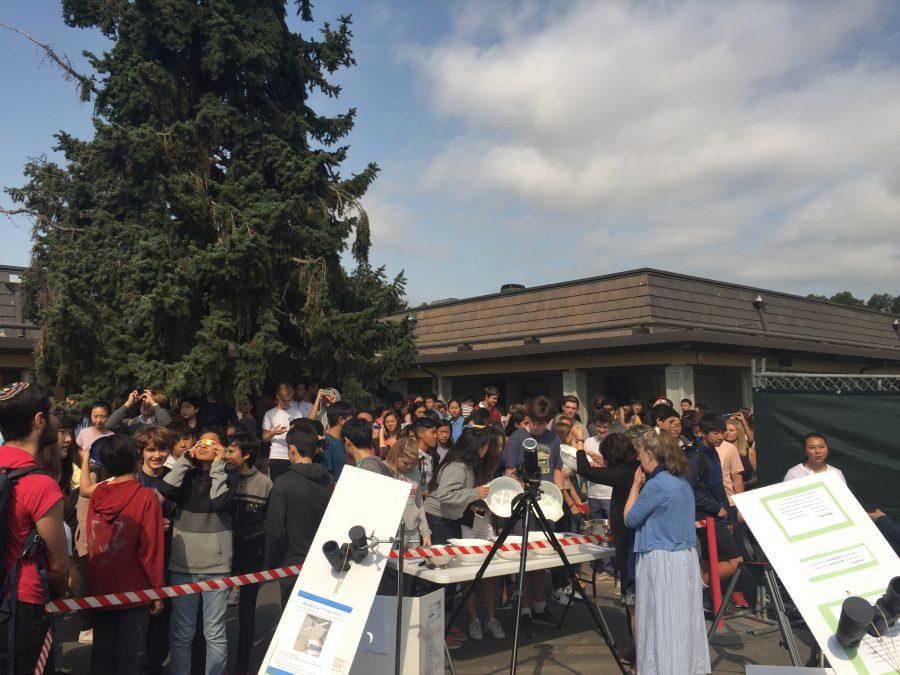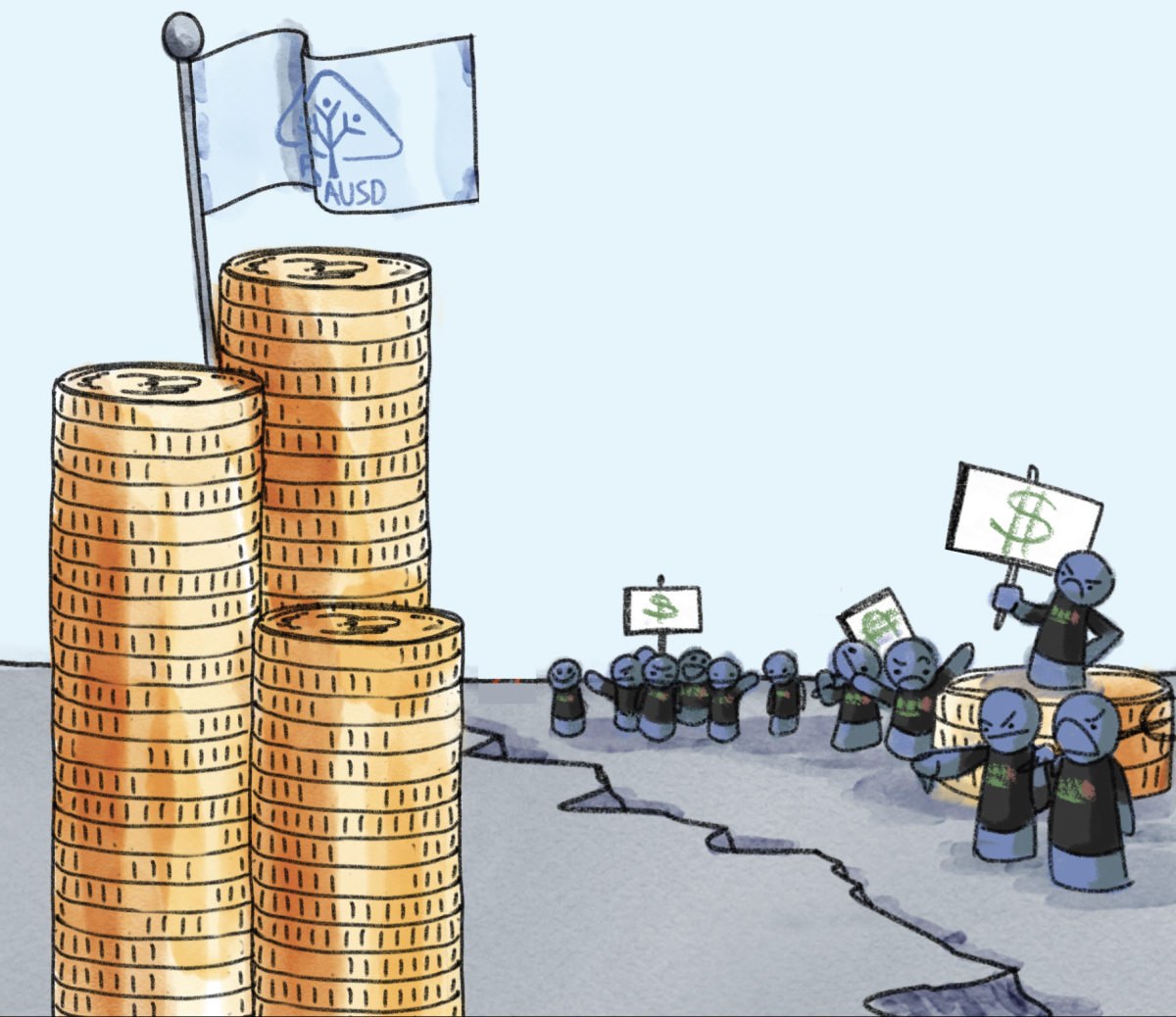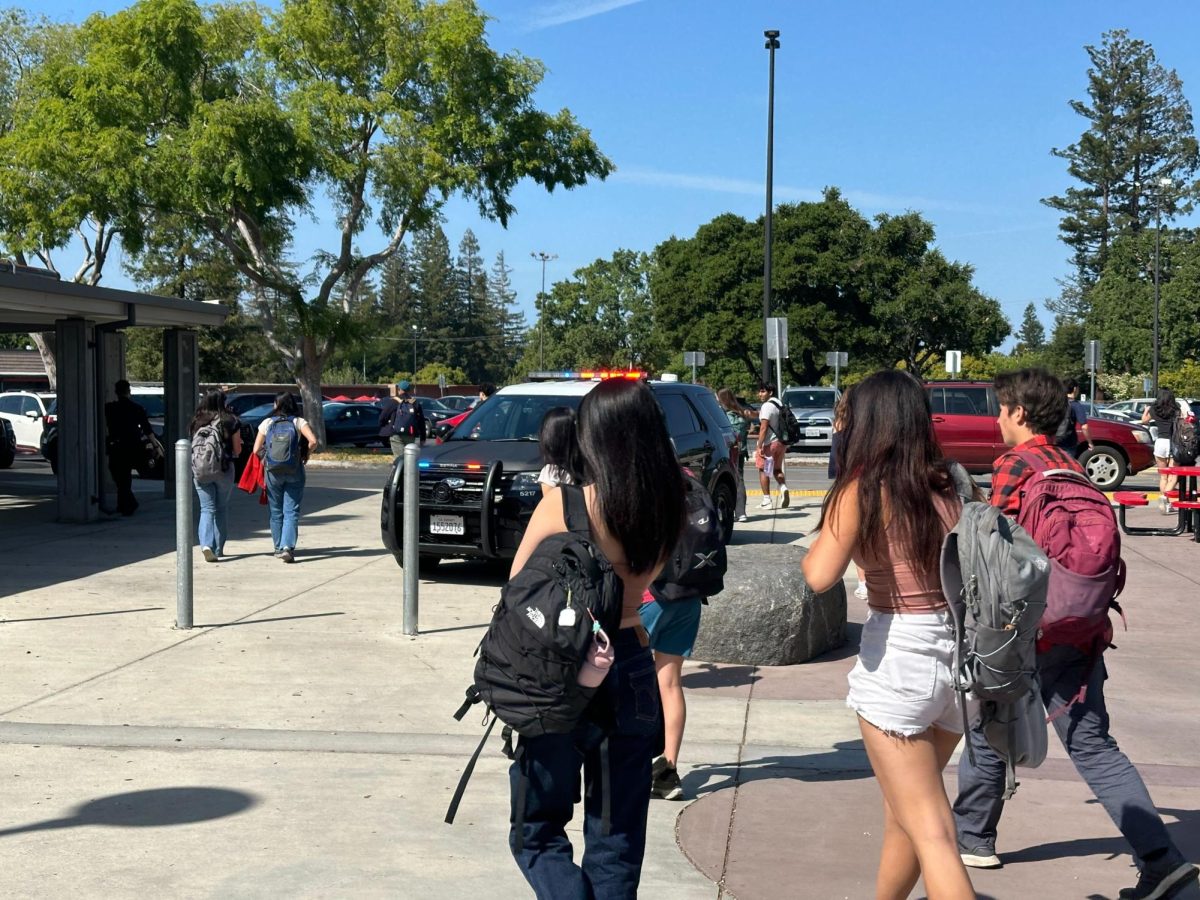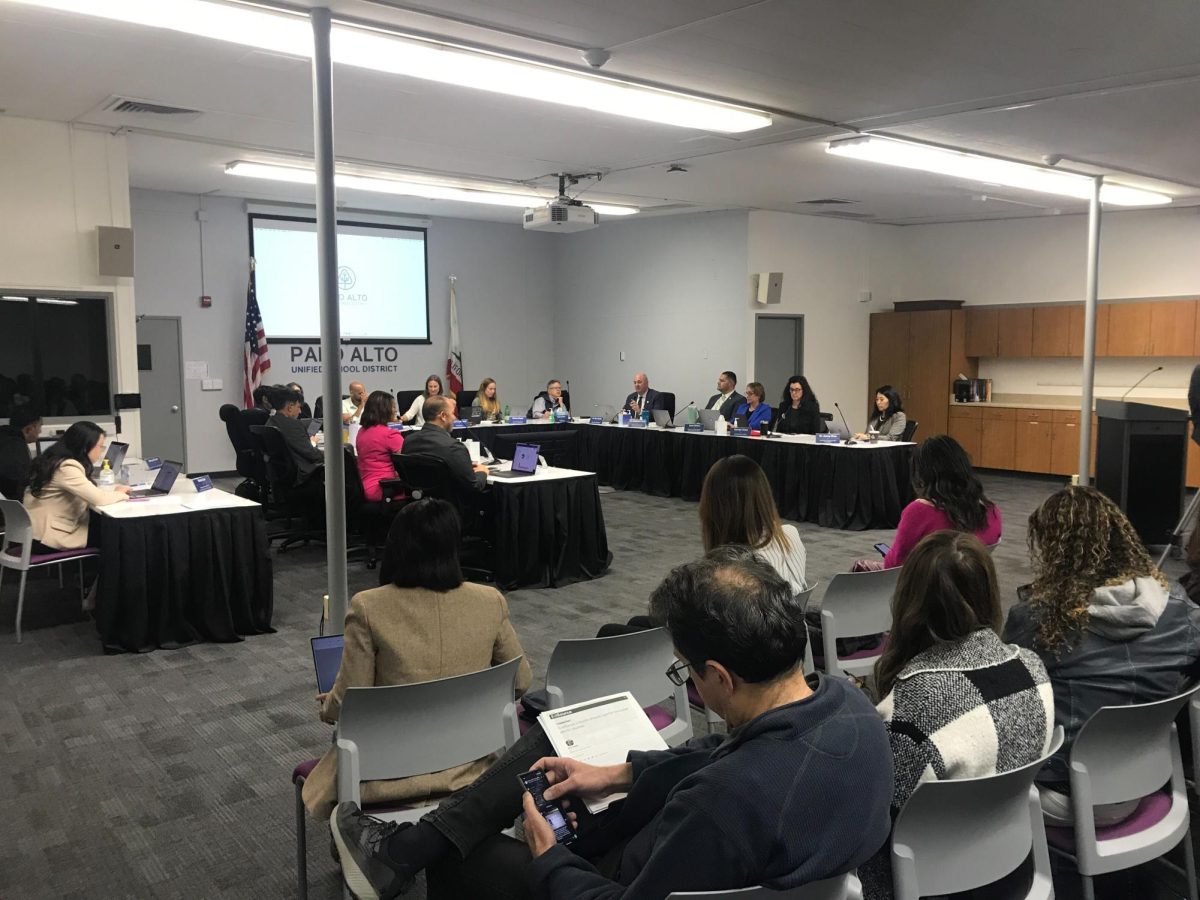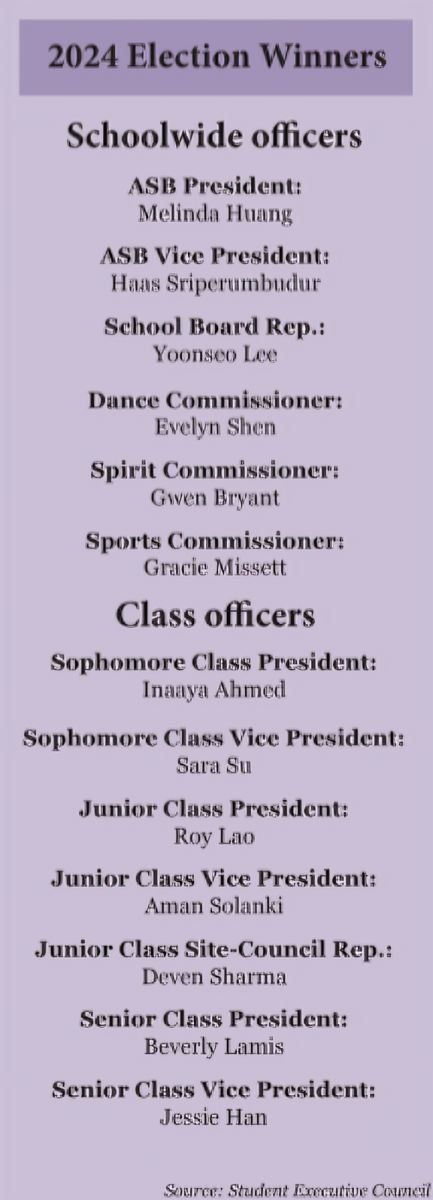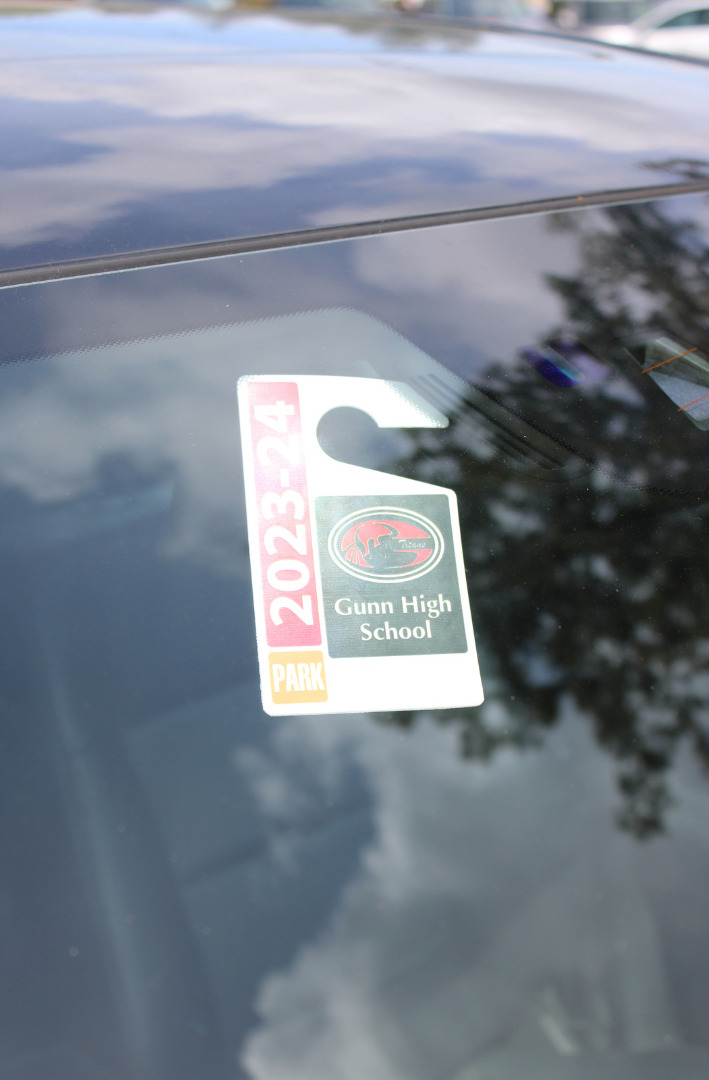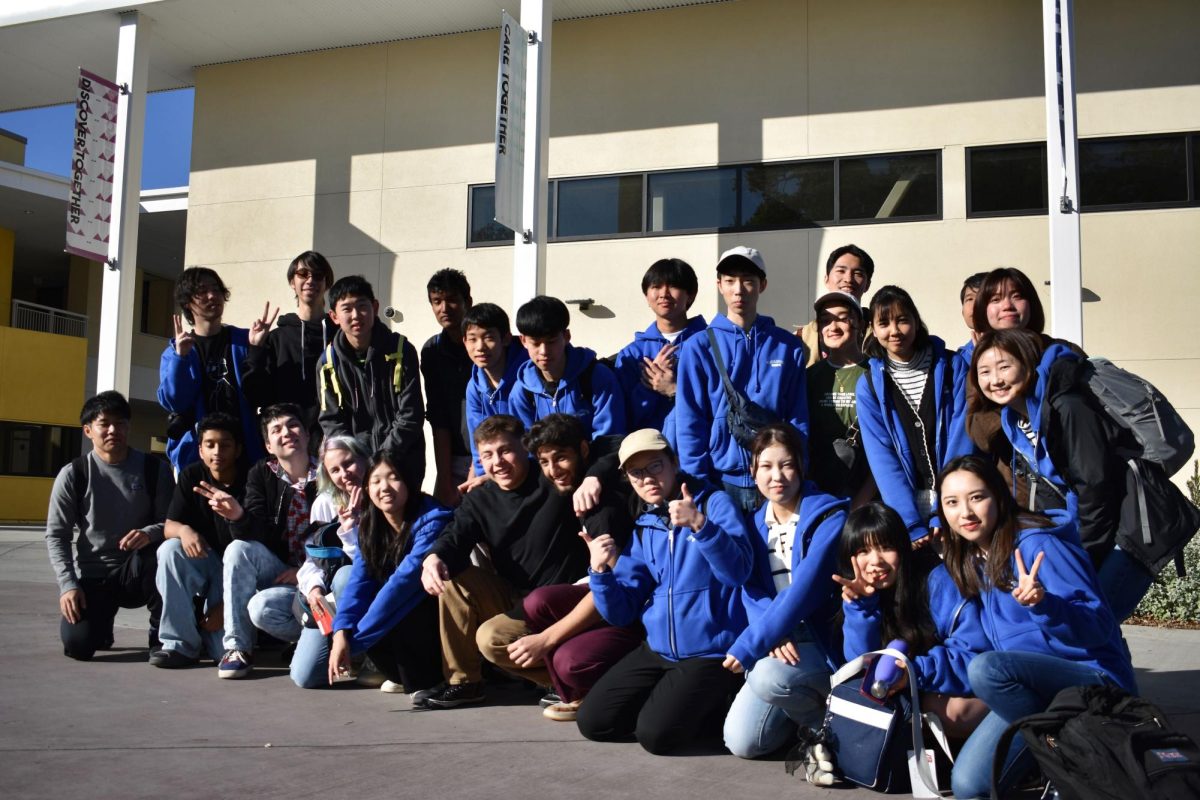Written by Kristen Yee
On Aug. 21, Americans were greeted in the morning by a total eclipse, the first to cross the United States from the Pacific to the Atlantic since June 8, 1918.
The total eclipse was incomplete for Palo Altans, as the moon blocked only 75 percent of the sun in California. The total eclipse began at around 9 a.m., reached totality at around 10:15 a.m. and ended at around 11:38 a.m. As totality came around, students filed out of B period classes and gathered around a station on the senior quad to view the astronomical phenomenon.
For most students, this was their first time viewing an eclipse. “I expected it to look like an orange moon with a bite taken out of it,” junior Jake Humble said. On the other hand, junior Ilaisaane Taufelele expected darkness, but was surprised to find otherwise. “I saw the sun, [just] the top part and a little cut where the moon is,” she said. “I saw a little moonlight at the bottom.”
When asked about the eclipse at the eclipse station on the quad, Special Education teacher Richard Rullo said he wished he had prepared more beforehand. “It’s pretty cool, I kind of wish I had done a little more research and gotten glasses earlier,” he said. “It’s really cool of Dr. Mellows to set up this station for everyone.”
The eclipse station was set up by chemistry teacher Heather Mellows. Various pieces of equipment were available, including three reflecting telescopes equipped with solar filters so that students could safely look through them. There were also three sets of binoculars set up to project the eclipse onto the floor or on a board.
Students were continuously reminded to not look directly at the sun in the days before the eclipse. Information about ways to safely view the eclipse were broadcasted through the morning announcements, shared in classes and posted on Schoology. Mellows also created a public service announcement video to educate the Gunn community.
Contrary to popular belief, it is not safe to view an eclipse through cameras that do not have specialized lenses, as concentrated solar rays can damage the filter and cause harm to the eyes. The most important part is blocking the sun’s rays directly. Sunglasses are not dark enough to protect the eyes, so it is important to use eclipse glasses as they are nearly opaque, blocking out a significantly higher amount of sunlight.
There is often some confusion about the regularity with which eclipses appear. Approximately every 18 months an eclipse occurs, and they tend to appear in groups of four. Eclipse occurrence mostly depends on how the earth and moon line up. Because they have to intersect, the regularity of eclipses is only predictable to a certain degree. Mellows witnessed an irregularity during her experiences viewing eclipses around the world. She saw the 2009 eclipse in China and then another on Easter Island the very next year. “Those are closer than average, but then there might be four years where there isn’t a solar eclipse,” she said.
It may not have been completely dark in Palo Alto, but in areas reaching complete totality, that was the case. Mellows described her experience as abnormal and shocking. “It should not be getting dark and it shouldn’t be getting so dark this fast and this completely,” she said. “Birds go quiet, the nocturnal animals think, ‘Wait a minute, should I be up?’”
The experience interested those passionate about science and astronomy. Freshman Felix Fonrobert highly anticipated the event. “I’m excited because it’s pretty cool,” he said. “I like science, and it’s once in a lifetime.”
For Mellows, viewing the eclipse was unique from other scientific phenomena because staff and students didn’t have to do anything to experience it other than embrace it as it came. “I would imagine climbing Mt. Everest is in [the category of feats difficult to attain] but not everybody can do that,” she said. “All you have to be is in the right place at the right time to see this, and it’s an amazing experience.”
Taufelele looks forward to viewing an eclipse again later in life. “This is my first time so [being able to see the eclipse is] really cool,” she said. “I know some elderly people who saw an eclipse when they were sixteen or seventeen. Maybe when we’re fifty we’ll see it again.”


